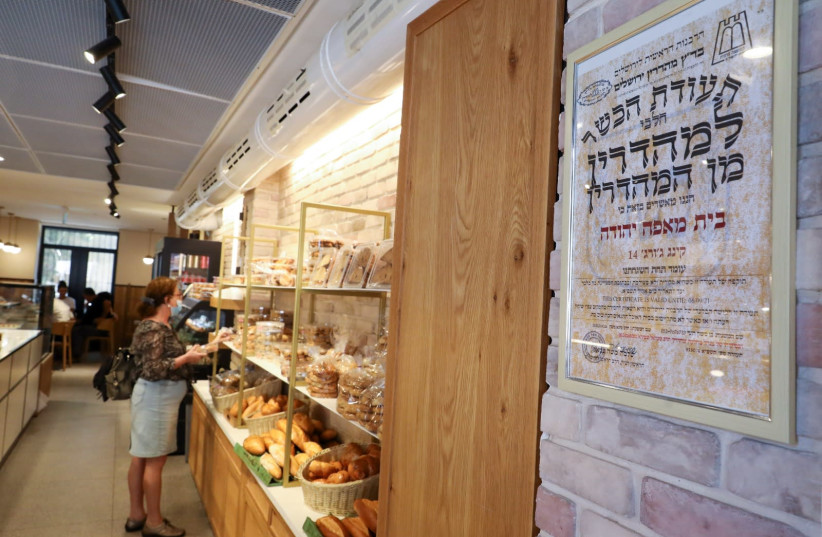The controversial kosher certification reform plan of Religious Services Minister Matan Kahana passed its final readings at the Knesset Committee for Special National Infrastructure Initiatives and Jewish Religious Services on Wednesday morning.
The bill abolishes the present system under which local rabbinates that are under the authority of the Chief Rabbinate are the only bodies that can issue a kashrut certificate stating that a restaurant or other food business is kosher. In its place, independent kashrut authorities will be allowed to provide supervision to any business requesting their services, and the Chief Rabbinate would operate as a supervisory body to ensure compliance with kashrut standards.
The reforms have generated fierce opposition from the Chief Rabbinate as well as the ultra-Orthodox and conservative religious-Zionist parties.
“We are breaking the monopoly of the rabbinate,” committee chairwoman MK Yulia Malinovsky said. “What pains them is that they are losing the power to decide for all of us.”
Likud MK Shlomo Karhi said that due to the advancement of the bill, “It’s a dark day for Judaism.”

Meanwhile, the government continues to prepare the state budget to be formally presented to the Knesset on Sunday, with the Knesset Finance and Economics committees approving additional chapters of the Economic Arrangements Law (EAL) that will accompany the budget.
The state budget for 2021, including corona expenses and debt payments, is NIS 609.1 billion, and the budget for 2022 will be NIS 572.9b., which the Finance Committee approved Wednesday morning. The 2022 budget was increased by NIS 10b. to allow for any additional coronavirus waves that are not currently foreseen.
A budget of NIS 1.17b. for yeshivot was also approved within the budget base, under a compromise reached with opposition members Yinon Azoulay, Bezalel Smotrich, Yitzhak Pindrus and Ofir Katz. This means the yeshivot will be able to receive the funds immediately after the budget passes, resolving an issue that had come up that could have delayed those payments for several months.
Funding for the coalition was approved at NIS 326 million for 2021 and NIS 400m. for 2022.
The first of three readings of the EAL and budget was passed in the Knesset in September, before the holiday recess. The coalition plans to place the latest version of the budget on the Knesset table on October 31, and will host marathon deliberations before the final two votes. The deadline for approving the budget is November 14, but the coalition decided to start the debates early, to leave time for unforeseen delays.
If the budget is not passed by November 14, the Knesset will automatically be disbanded and new elections will be held.
Unrelated to the budget, the Knesset Constitution, Law and Justice Committee approved a plan to further limit the size of cash transactions, as part of its ongoing battle against money laundering.
Cash payments to stores can now be no larger than NIS 6,000, instead of NIS 11,000 previously, and cash transactions between individuals are capped at NIS 15,000 instead of NIS 50,000. People buying cars from private individuals can transfer up to NIS 50,000 in cash.
Fines for violating the law will range from 5% to 25% of the sum transferred, depending on the size of payment.
